CAG Clinical Bioinformatics (CBIO)
Analyse af patientdata er en integreret del af den kliniske beslutningsprocess. I takt med at mængden af tilgængelige data bliver større, stiger behovet for algoritmer til dataanalyse. Disse algoritmer udvikles, implementeres og anvendes af bioinformatikere, videnskabsfolk uddannet i biologi, datalogi og matematik. Anvendelsen af analysealgoritmer, såsom machine learning (ofte omtalt som kunstig intelligens), på biologiske data falder ind under området bioinformatik.
Målet med CBIO er at udvikle og implementere bioinformatiske algoritmer i klinikken for at optimere klinisk beslutningstagning med hensyn til præcision og tidsforbrug for praktiserende klinikere. CBIO samler akademiske bioinformatikforskere, der arbejder med innovative algoritmer til at udtrække klinisk relevant viden fra patienters omics-data, kliniske bioinformatikere, der arbejder på at optimere arbejdsgange og rapporteringssystemer for at analysere og kommunikere informationen til kliniske beslutningstagere, samt de klinikere, der bruger omics-data til at træffe beslutninger om patienternes behandlingsforløb. Forskerne i CBIO vil udvikle og implementere en række værktøjer til at støtte kliniske beslutninger, for eksempel algoritmer til forudsigelse og forebyggelse af tilbagefald hos patienter med tyktarmskræft, algoritmer der dramatisk reducerer den tid, der bruges på sygdomsovervågning af leukæmipatienter under behandling, og avancerede algoritmer til at opsummere store mængder genomdata for præcisionsbehandling af flere kræftformer.
Since the dawn of the medical profession, doctors have based their decisions on data collected from patients. The difference between the practices of the last century and the current one, is the amount of available data points doctors can use to base decisions on. As an example, a patient genome sequence represents 3.2 billion data points, and while highly informative, the data is not useful to decision making doctors, until distilled to the translational biomarkers encoded in the DNA. The transformation of these data to actionable knowledge is handled by bioinformaticians, who are data scientists trained with a strong domain knowledge in the field of biology.
Bioinformaticians develop tools for handling, storing, processing, analyzing,and summarizing huge amounts of biological data, translating them into clinically actionable knowledge about patients. We do this using advanced statistical and mathematical models, for example machine learning (abbreviated ML throughout, but also often referred to as AI). As such bioinformatics is a highly interdisciplinary field, which can be further subdivided into two main categories: “bottom up” bioinformatics (programming new algorithms to solve specific tasks) and “top down” bioinformatics (implementing multiple algorithms to solve general tasks).
For simplicity’s sake, we can say that academic bioinformaticians work bottom up to innovate algorithms, and clinical bioinformatics work top down to implement bioinformatics into clinical practice. As technologies for generating ever deeper profiles of patients evolve, the demand for both academic and clinical bioinformaticians continues to increase.
As evident from a 2020 report by the Novo Nordisk Foundation, the need for bioinformaticians in the health care sector is growing by approximately 30% every 5 years. While this is being partially addressed by educating bioinformaticians to work with the data generated at the hospitals, there is a gap between innovation at the universities and implementation at the hospitals This is, in part due to clinical bioinformaticians lacking a community structure, where “applied health care bioinformaticians” can interact with “academic research bioinformaticians”.
The idea for this CAG comes from a small-scale version of this type of “innovation meets production” community, carried out at Center for Genomic Medicine in the mid 2010s. Academic researchers from University of Copenhagen (including chair Lars Rønn Olsen) spent a day a week at the Center for Genomic Medicine with clinical bioinformaticians (including co-chair Frederik Otzen Bagger). This resulted in the identification of challenges and opportunities for bioinformatics in clinical decision support, as well as the development and implementation of the corresponding solutions. These innovations provided, for example, cost saving technologies by enabling assay consolidation, as well as significant reduction in the time from sampling to reply.
Kontakt os
Hvis din henvendelse drejer sig om egne symptomer, sygehistorie og behandling skal du kontakte egen læge.
CAG-Chairs
CAG-Junior Chairs
-
Signe Modvig Stausbøll MD, PhD, Master Bioinformatics, Clinical Associate professor, Copenhagen University Hospital, Rigshospitalet, Department of Clinical Immunology
-








